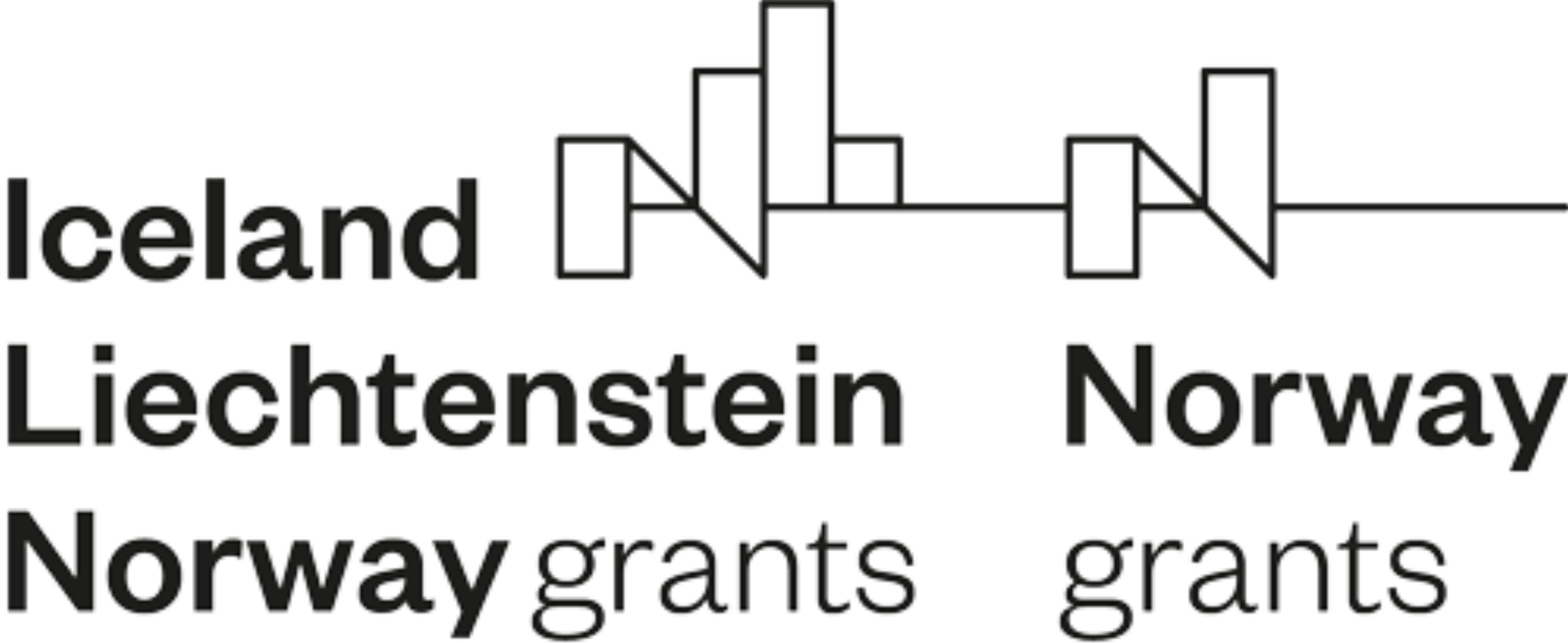European Businesses Leading the Way to Meet the European Green Deal
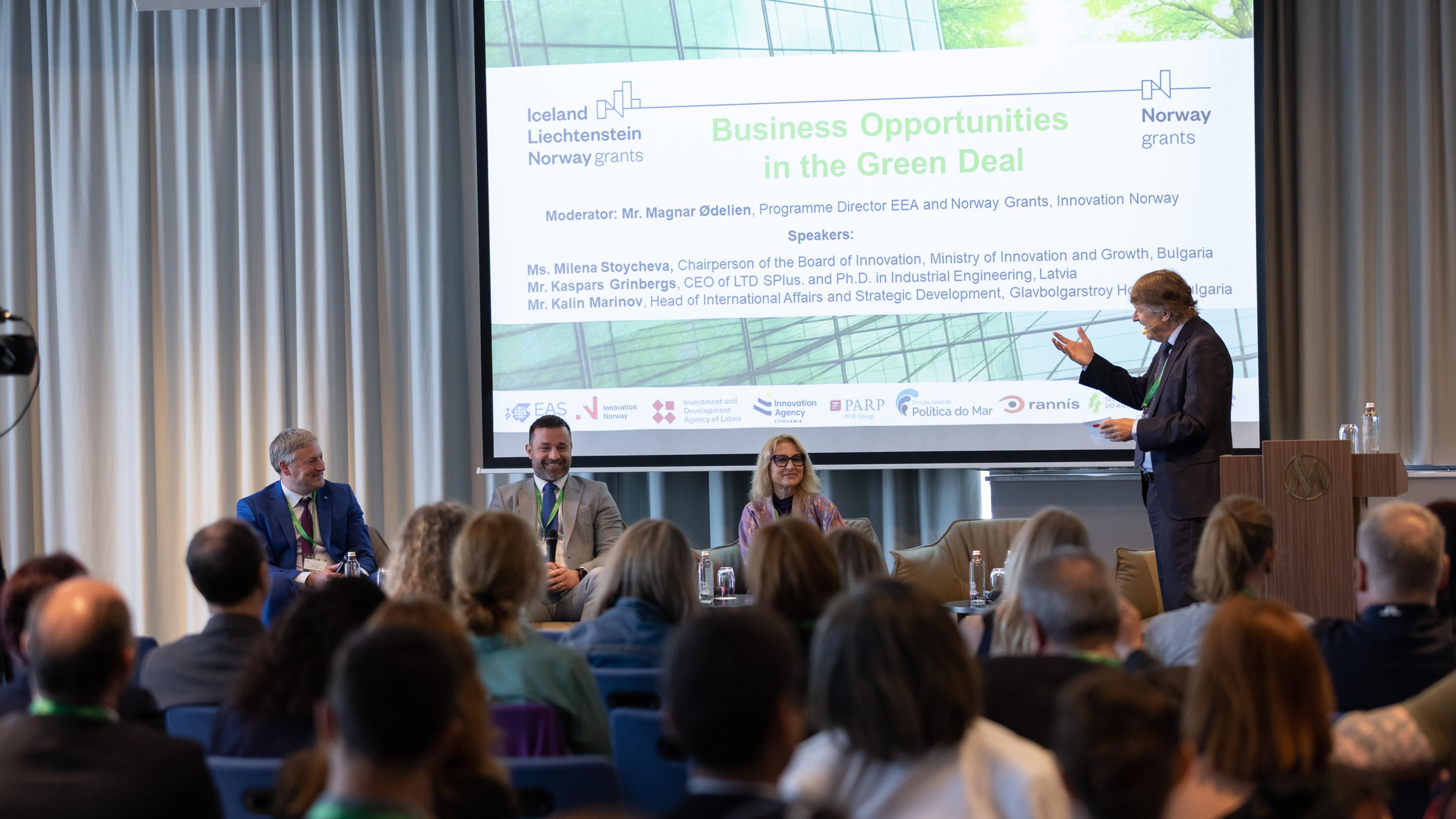 © snimam.eu
© snimam.euOrganised by Innovation Norway, as part of the EEA and Norway Grants, the event aimed to create new business opportunities within the framework of the European Green Deal. The event was a collaborative effort with long-time partners from Bulgaria, Croatia, Estonia, Greece, Iceland, Latvia, Lithuania, Norway, Poland, Portugal, Romania, and Slovakia. These countries work together in 10 programmes that support business development, innovation, and SMEs through the EEA and Norway Grants.
The EEA and Norway Grants represent contributions from Norway, Iceland, and Liechtenstein to reduce disparities and strengthen cooperation in Europe. Overall, these grants provide 340 million euros to 10 countries, supporting projects that enhance competitiveness and value creation through business programmes, including projects that drive the green transition. All programmes encourage partnerships with entities in Norway, Iceland, or Liechtenstein.
The event also aimed to present the EEA and Norway Grants, prepare the ground for the future and connect partners for cooperation on sustainable solutions, beyond the ongoing funding-period of the Grants. The current funding period of the EEA and Norway Grants is coming to an end, and the event aimed to create potential partnerships for the upcoming period!
Photos from the event are available here. Please credit the photographer: Petar Yordanov/snimam.eu
What Did We Discuss?
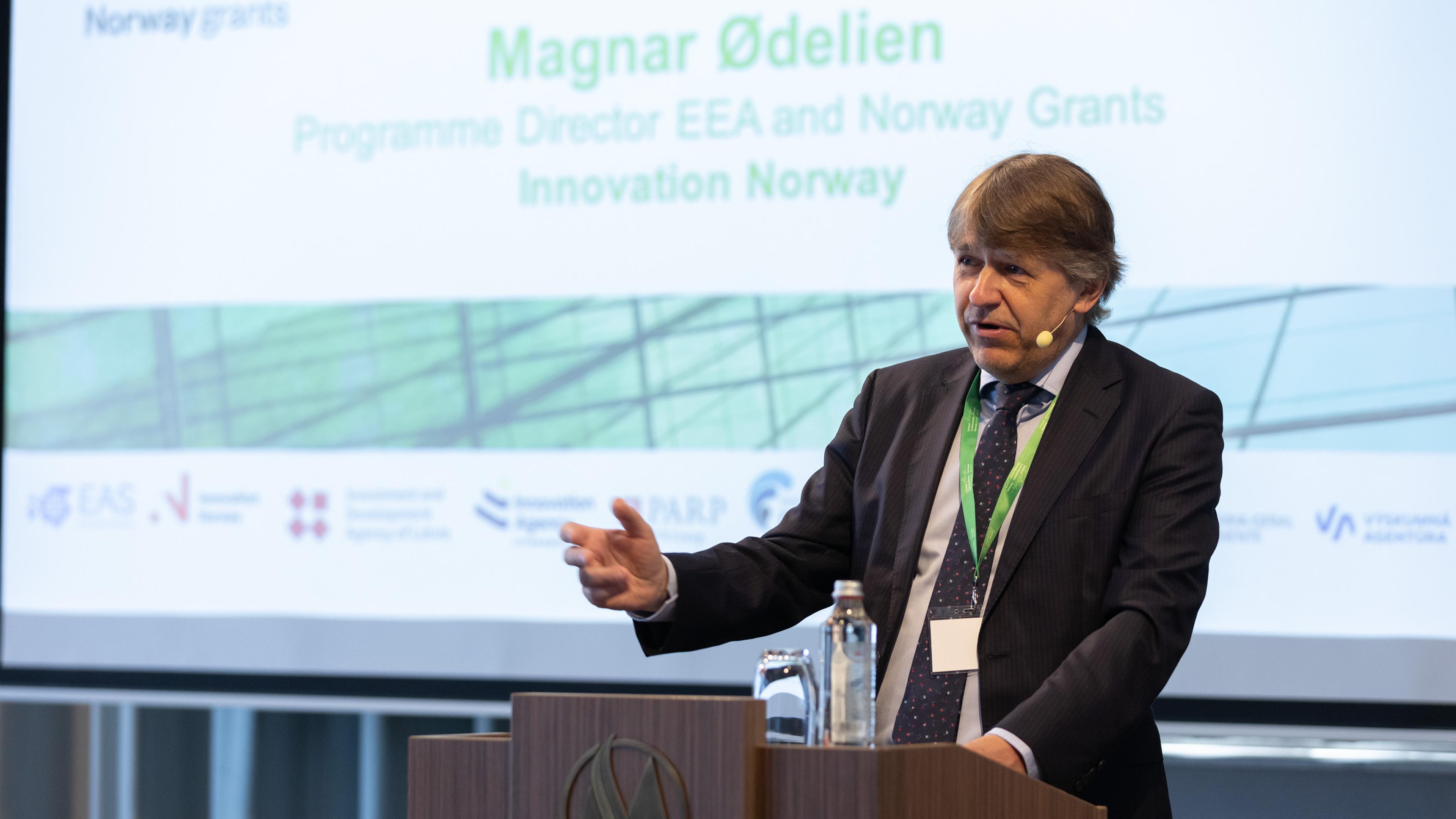 © Petar Yordanov/snimam.eu
© Petar Yordanov/snimam.euSpanning two days, the event featured five main sessions, starting with a plenary session followed by four thematic sessions on:
- Hydrogen for Greening Transportation
- Raw Materials for Net-Zero Targets
- Digitalisation of the Sustainable Blue Economy
- The Role of Carbon Capture and Storage
The detailed programme is available here.
Each session focused on business creation within these areas of the European Green Deal. Participants explored the latest expertise, opportunities, and innovative ideas for business development, green solutions and new technologies for sustainable growth. The urgency to combine growth with sustainability, green growth, to meet the European Green Deal goals was a recurring theme.
Achieving net-zero emissions relies heavily on cross-country cooperation among companies, clusters, research institutes, and industry associations. Cooperation is key!
The programme featured numerous speakers, representing various countries and sectors critical for the green transition.
Highlights from the Plenary Session
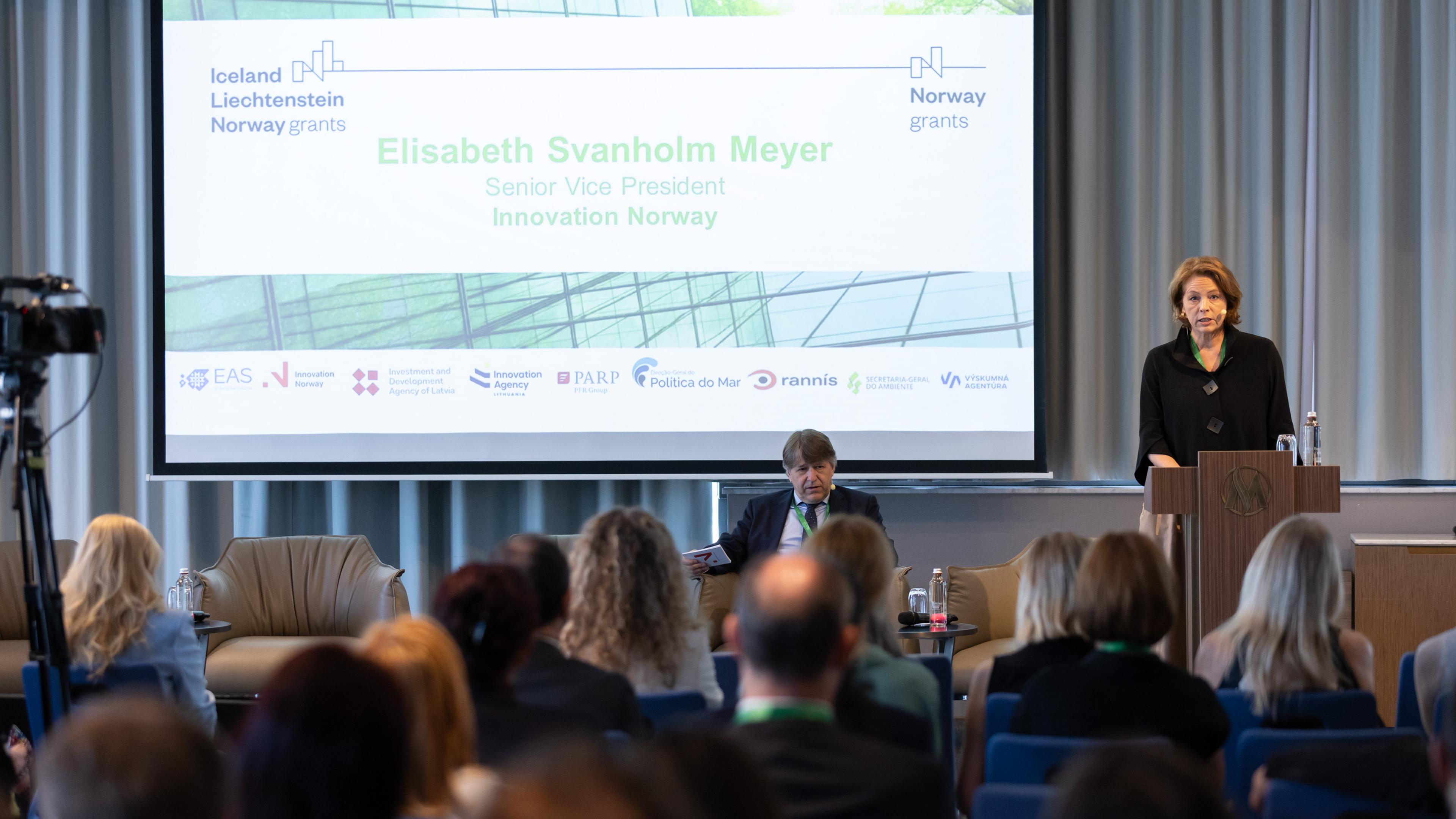 © Petar Yordanov/snimam.eu
© Petar Yordanov/snimam.euThe plenary session opened the event with welcoming remarks from Ms. Iliana Ivanova, European Commissioner for Innovation, Research, Culture, Education, and Youth, and Ms. Elisabeth Svanholm Meyer, Senior Vice President at Innovation Norway.
Ms. Zornitsa Roussinova, President of the Economic and Social Council of Bulgaria, highlighted the business sector's contributions to the European Green Deal and the vast opportunities it presents. Ms. Turi Bundlie Bakke from the Norwegian Ministry of Foreign Affairs elaborated on Norway's perspective on the role of businesses in achieving the European Green Deal targets. She explained that the EU Green Deal is not merely an environmental strategy but also the EU’s blueprint for green growth. She also discussed the challenges presented by the green transition, while highlighting the immense opportunities created by the European Green Deal. Although the Business and Innovation programmes in the EEA and Norway Grants predate the European Green Deal, their goals align perfectly: they benefit both businesses and the environment. In this context, she elaborated on how the support provided by the EEA and Norway Grants through the Business and Innovation Programmes can fill a crucial financing gap, enabling more European businesses to benefit from and contribute to the European Green Deal.
The plenary also featured a panel discussion on business opportunities within the European Green Deal. Panellists included Ms. Milena Stoycheva, Chairperson of the Board of Innovation at the Bulgarian Ministry of Innovation and Growth, Mr. Kaspars Grinbergs, CEO of LTD SPlus, and Mr. Kalin Marinov, Head of International Affairs and Strategic Development at Glavbolgarstroy Holding, Bulgaria. The panel offered valuable insights into the Green Deal's objectives, necessary measures, and how businesses can benefit from EU regulations on the Green Deal. From the panel disussion, it became clear that innovation originates from businesses, with companies leading the way to meet the Green Deal's goals. Cross-country cooperation is the only way going forward if we are to meet the challenges faced by climate change, and European businesses will have an important role here.
Recordings from the plenary session are available here:
Plenary Session - Part 1 (youtube.com)
Plenary Session - Part 2 (youtube.com)
Thematic Session: Hydrogen for Greening of Transportation
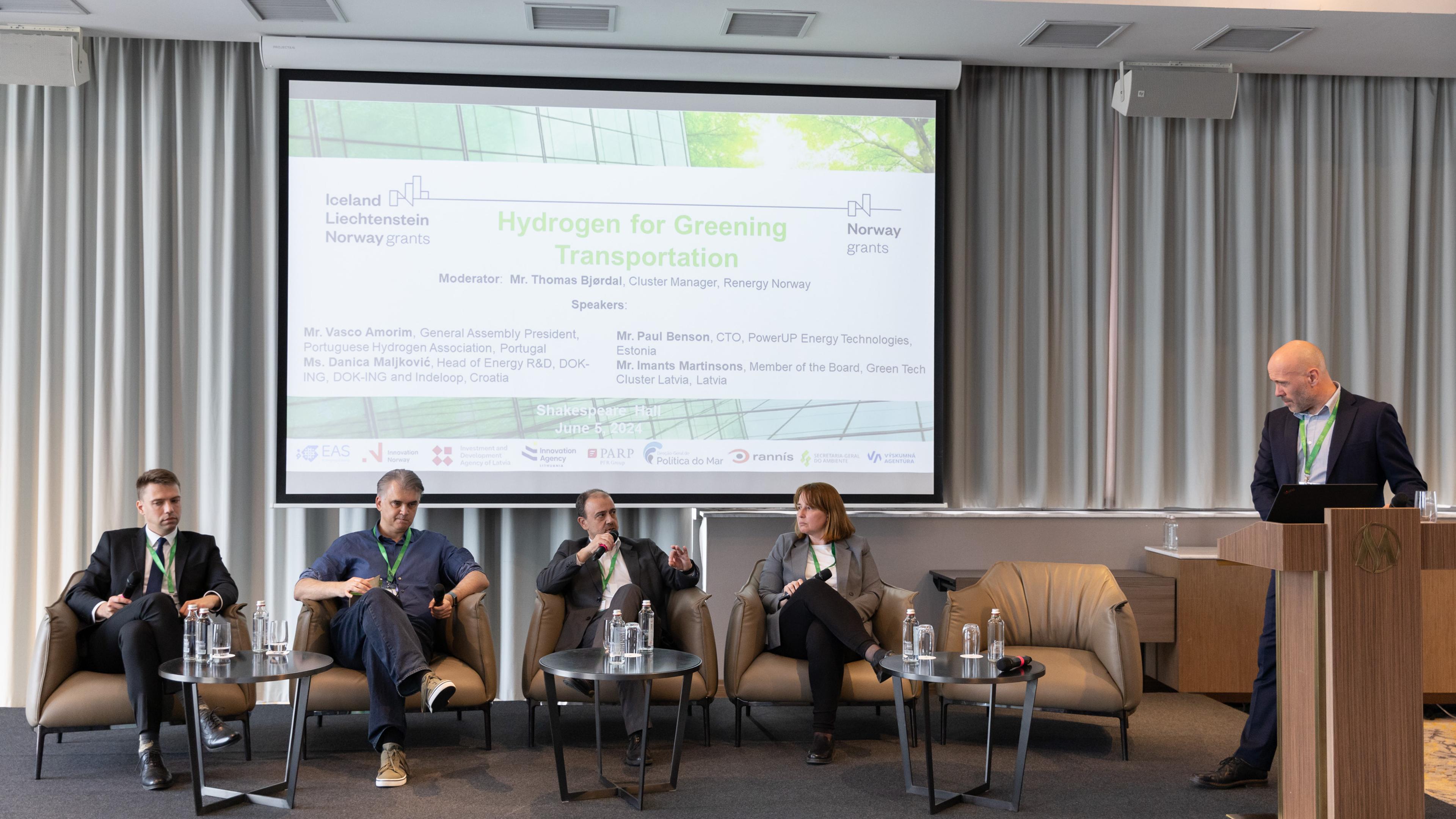 © Petar Yordanov/snimam.eu
© Petar Yordanov/snimam.euHydrogen is a key clean fuel for transportation, especially in fuel cells, which emit only water vapor. Hydrogen is essential for achieving a 55% reduction in greenhouse gas emissions by 2030. The EU aims to produce 10 million tonnes of hydrogen by 2030, emphasizing its role as a clean energy source. The session discussed accelerating the hydrogen value chain from pilot initiatives to market-driven solutions.
Speakers included Mr. Paul Benson from PowerUP Energy Technologies, Mr. Vasco Amorim from the Portuguese Hydrogen Association, Mr. Imants Martinsons from the Green Tech Cluster Latvia and Ms. Danica Maljković, from DOK-ING and Indeloop. The presentations involved an introduction to the potential of, and the technology behind, fuel cells, hydrogen valleys as an important tool for spreading risk and how politics can foster hydrogen production and create infrastructure for hydrogen. During the presentations, a specific project implemented in Croatia by Indeloop was presented - they turn textile waste into hydrogen! This is a great example on how we can use waste as a resource!
The panel discussion, moderated by Thomas Bjørdal, Cluster Manager of RENERGY, explored hydrogen's role in energy security and resilience for Europe, transitioning from dependency on Russian energy to European energy independence.
Recordings of Hydrogen for Greening Transportation are available here:
Thematic Session: Hydrogen for Greening of Transportation - Part 1 (youtube.com)
Thematic Session: Hydrogen for Greening of Transportation - Part 2 (youtube.com)
Thematic Session: Raw Materials for Zero-Emission Targets
 © Petar Yordanov/snimam.eu
© Petar Yordanov/snimam.euRaw materials and rare earth elements are vital for achieving the EU's zero-emission targets. The EU is heavily reliant on imports, with these being highly concentrated in a few countries. The Critical Raw Materials Act underscores the link between raw material availability and zero-emission technologies. The session addressed the most demanded materials, the impact of global geopolitics, and the EU's role in ensuring sustainable access to these materials.
This first speaker of the session, Mr. Kalin Marinov delved into how the construction sector and technology can contribute to a more circular economy within Raw Materials, to ensure safe and sustainable access to critical materials needed for net-zero technologies.
This session contained a joint presentation from Espen Lea from Cemonite and Mirjam-Kim Rääbis from UP Catalyst OÜ. Espen and Mirjam-Kim presented their project, supported by the EEA and Norway Grants, and the opportunities and challenges they see as to quite similar startups from Norway and Estonia.
Moderated by Ms. Teresė Škutaitė, Head of GreenTech Hub at Innovation Agency Lithuania, this session's panel discussion explored strategies for businesses to navigate sourcing challenges.
The recordings from the thematic session on Raw Materials are available here:
Thematic Session: Raw Materials for Zero-Emission Targets - Part 1 (youtube.com)
Thematic Session: Raw Materials for Zero-Emission Targets - Part 2 (youtube.com)
Thematic Session: Digitalisation of the Sustainable Blue Economy
Digital Ocean Twins support a sustainable blue economy by providing powerful tools for ecosystem-based management, marine spatial planning, and marine protected areas. President von der Leyen announced the European Digital Twin Ocean initiative in 2022, emphasizing the role of digitalisation in reaching a sustainable blue economy. In this session, we explored the many uses of digital twins related to the ocean, ranging from resource management and monitoring tools to optimize offshore renewable energy, waste management and much more.
Hearing from three different projects from Portugal, Poland and Slovakia, the participants got to see first hand how digitalisation of the Sustainable Blue Economy can help reducing global emissions and create new business sectors. Mr. Andrei Covatariu, from the United Nations Economic Commission for Europe delved into the intersection of energy, digitalisation, and the Blue Economy. Mr. Pavol Dvoriak from BAMIDA, discussed how AI, IoT and technology can foster a more sustainable blue economy in Slovakia - which is impressive since Slovakia was the only country represented in the panel without a coastline! But Slovakia does have a lot of rivers, and it was really interesting to listen to how they work with digitalisation of the sustainable blue economy in that sense. Mr. Bartosz Langowski from the Port of Gdynia presented the Digital Twin project in the Port of Gdynia, using drones to collect data! Mr. Carlos Pinho elaborated on their project "Portugal Blue Digital Hub", promoting the digital transformation of the blue economy cluster by stimulating entrepreneurship, attracting foreign investment, providing training in digital skills and the development of digital services based mainly on artificial intelligence.
Moderated by Mr. Sigurður Bjartmar Magnússon, Chief Technical Officer, Greenfish, Iceland, the panel discussion were sizzling with opportunities and challenges for businesses, as well as delving into the differences between the countries the panellists represent.
The recordings of the session on Digitalisation of the Sustainable Blue Economy are available here:
Thematic Session: Digitalisation of the Sustainable Blue Economy - Part 1 (youtube.com)
Thematic Session: Digitalisation of the Sustainable Blue Economy - Part 2 (youtube.com)
Thematic Session: The Role of Carbon Capture and Storage
Carbon Capture and Storage (CCS) mitigates climate change by capturing and storing CO2 emissions from industrial processes and power plants underground. The EU has highlighted CCS as a key technology to reach its climate neutrality goal by 2050. CCS offers a promising avenue for sustainable growth, encompassing business opportunities from technology development to storage solutions. What role will CCS play in the green transition, and how can CCS enable us to reach our decarbonization commitment on time? What are the possibilities for regional and international cooperation?
Three main topics were touched upon by the moderator Iva Petrova:
- How do we see the technology CCS within the green transition
- What do businesses need the public sector to deliver?
- What are the possibilities for regional cooperation?
Ms. Luciana Miu, head of clean economy at the energy policy group gave an overview of the policy context at EU level, linking the green transition and the economic transformation. Ms. Laura Štrovalde, Deputy Director for investment and energy, Investment and Development Agency of Latvia, delved into how government can foster CCS projects, and showed some great Latvian examples on how companies can implement CCS. Mr. Rossen Papazov from Holcim Bulgaria gave valuable insights from the private sector and showed the participants Holcim Bulgaria’s road to net zero.
Did you know that the equivalent of New York City's size is being built every month? Achieving net-zero emissions will be impossible without technologies like Carbon Capture and Storage (CCS). CCS will play a crucial and necessary role in promoting green growth: there should be a competitive race among businesses and countries to offer CCS as a services, as this represents a significant opportunity to build a business around a technology that is and will continue to be in high demand.
Recordings from the thematic session on CCS are available here:
Thematic Session: The Role of Carbon Capture and Storage - Part 1 (youtube.com)
Thematic Session: The Role of Carbon Capture and Storage - Part 2 (youtube.com)
Matchmaking
The aim was to create business opportunities and cooperation on blue growth, and the event included a matchmaking both online and at the venue. A total of 180 participants had registered and 100 meetings took place during the matchmaking session. At the venue, the room was buzzing with physical meetings between participants at the event. The participants were eager to meet and discuss, both on and off stage, and the matchmaking seems to have borne results!
Long-Term Matchmaking
Want to continue matchmaking with potential partners? Didn’t find the time to talk to someone who seemed interesting? Don’t worry! The B2Match-portal will stay open until 17 July, allowing for digital meetings and dialogue between participants until then.
